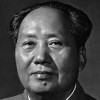“ No equal quantity of productive labour employed in manufactures, can ever occasion so great reproduction. In them Nature does nothing; man does all ”
Adam Smith, The Wealth of Nations (1776). copy citation
| Author | Adam Smith |
|---|---|
| Source | The Wealth of Nations |
| Topic | reproduction labour |
| Date | 1776 |
| Language | English |
| Reference | An Inquiry into the Nature and Causes of the Wealth of Nations |
| Note | |
| Weblink | http://www.gutenberg.org/files/3300/3300-h/3300-h.htm |
Context
“It is the work of Nature which remains, after deducting or compensating every thing which can be regarded as the work of man. It is seldom less than a fourth, and frequently more than a third, of the whole produce. No equal quantity of productive labour employed in manufactures, can ever occasion so great reproduction. In them Nature does nothing; man does all; and the reproduction must always be in proportion to the strength of the agents that occasion it. The capital employed in agriculture, therefore, not only puts into motion a greater quantity of productive labour than any equal capital employed in manufactures;”
source



